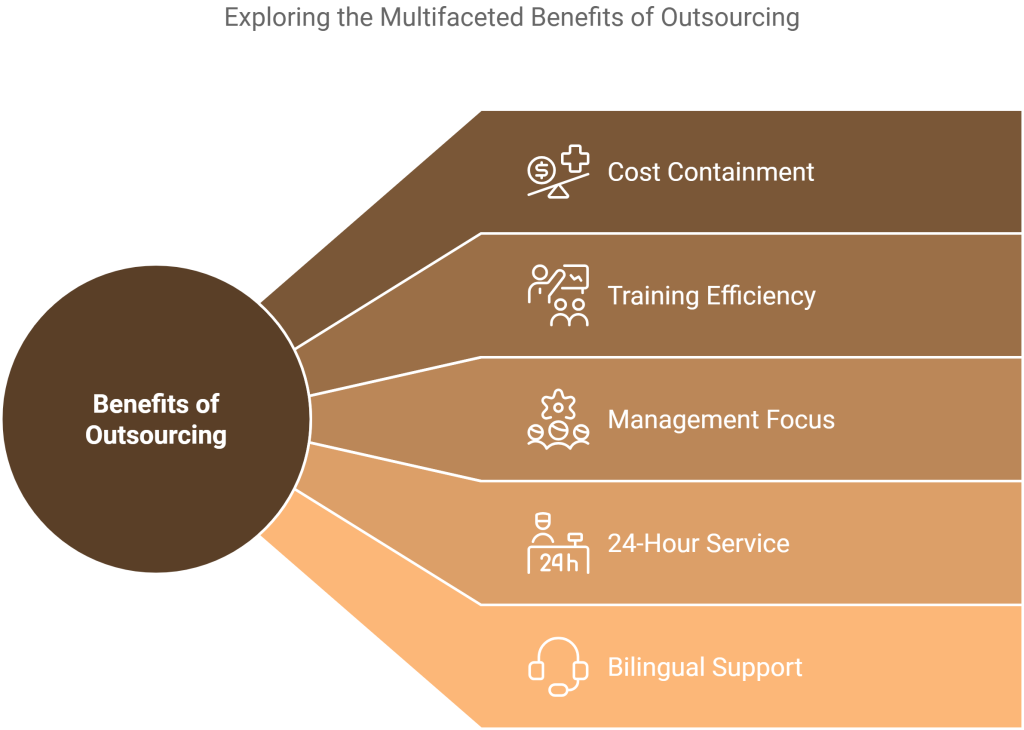Although the trend to outsource customer service predates the current recession, it has become increasingly appealing to businesses trying to hold down costs in a time of economic difficulties.

The decision to outsource can have economic benefits as labor is often cheaper overseas, but there are negative aspects as well. HelpSquad published a full guide on customer service outsourcing we recommend reviewing.
What is Outsourced Customer Service?
Outsourced customer service means hiring third-party providers to handle customer interactions like inquiries, complaints, and support via various channels. These providers bring expertise, technology, and trained staff to manage customer needs.
Businesses outsource to save costs, improve efficiency, and scale services. Providers, domestic or international, offer 24/7 support and flexibility. Success depends on aligning the provider with the company’s brand and values.
What are the pros of outsourced customer service?
A company may find that one of outsourcing customer service advantage is cheaper labor costs for the same job. Overall pay rates are lower overseas. This can help with cost containment.
Training of new call center employees can be expensive. Weeks of training new employees, creating and providing training materials, and a high rate of turn over in this area of work can all be avoided when the call center is outsourced.
The costs and materials for training are now the responsibility of the agency handling the customer service center overseas. This also has the benefit of freeing company management to concentrate on more essential aspects of the company.
Customer service that operates 24 hours per day is very expensive if done in the US, Canada or UK. Pay increases for employees working the later shifts. When the job is outsourced globally, workers are available around the clock. Removing the call center locally also frees up space for other, more essential workforce.
Using oversees call centers can benefit bilingual customers in the United States. Many call center jobs are outsourced to Mexico. This provides Spanish-speaking residents of the United States with service people who are fluent in the language they speak.

What are the cons of outsourced customer service?
There is a loss of control over an important area of business. Customer service is often the first link between a company and a customer with a problem.
If the call center’s employees aren’t trained to optimal levels, customers may be dissatisfied and not return with their business.
Language difficulties and poor connections are also a frequent problem and serve to alienate customers.
American workers experience job losses due to outsourcing even though they are generally better educated, available, and have relevant language skills.
Security of data and sensitive financial information is more difficult when it is being handled overseas.
Conclusion
Outsourcing customer service to an offshore is a major strategic decision that shouldn’t be made lightly. Before making a decision, research thoroughly, weigh the outsourcing customer service pros and cons, and make the best decision for the long-term interests of the company.
An excellent alternative to outsourcing support to an offshore team is enlisting the help of an answering service that’s based in the United States. Professionally trained operators can be brought up to speed on your offerings quickly, affording you the flexibility to provide excellent support to customers on a budget.